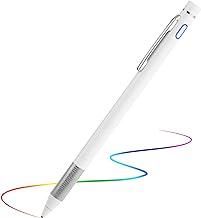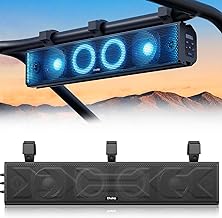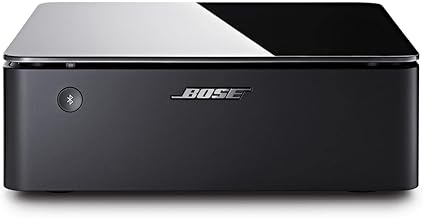When looking to buy a GPS antenna for your laptop, there are important things to think about to make sure you have a good navigation experience. To find the best GPS antenna, you need to look closely at more than just what it can do. You should also consider how accurate it is, how strong the signal is, if it works with your laptop, and how easy it is to install. There are a lot of GPS antennas for sale, so it’s important to understand how these factors can affect how well your GPS antenna works when you’re trying to figure out where to go.
See our guide to the best gps antenna for laptop.
Compatibility with laptop model
When buying a GPS antenna for your laptop, it’s important to make sure it works with your specific model. Choosing a GPS antenna made for your laptop will give you the best performance and features. Getting a compatible GPS antenna reduces the chance of running into technical problems or connectivity issues. This lets you navigate confidently and accurately. Plus, a compatible GPS antenna usually comes with support from the manufacturer and a warranty, so you can get help if you need it. By focusing on compatibility, you not only improve how well the GPS works but also protect your investment in a reliable navigation tool for your laptop.
Before purchasing a GPS antenna, research ones that match your laptop model to make a smart choice. Look at things like connector types, frequency ranges, and software compatibility to ensure the GPS antenna works well with your laptop. When you choose a compatible GPS antenna, you’ll be able to use your laptop’s navigation features to the fullest, making it easier to travel to new places efficiently. Making sure the GPS antenna is compatible with your laptop is a smart decision that creates a seamless connection between technology and convenience, giving you a better navigation experience.
Antenna gain and sensitivity
When you’re looking to buy a GPS antenna for your laptop, it’s important to think about two things: antenna gain and sensitivity. Antenna gain means how well the antenna can focus the signal in a certain direction, making it easier to pick up satellite signals. A higher gain antenna gives a stronger signal, which is helpful when you’re in places with obstacles or weak signal strength. On the other hand, sensitivity is how well the antenna can pick up weak signals and tell them apart from background noise. Choosing an antenna with high sensitivity can make your GPS data more accurate and reliable, making your navigation experience smoother.
Basically, finding a good balance between antenna gain and sensitivity is crucial when picking out a GPS antenna for your laptop. A high gain antenna with great sensitivity can improve signal reception and help you acquire satellite signals faster, which is important for smooth navigation, especially in tough terrain. Getting a high-quality GPS antenna that has both high gain and sensitivity can boost your laptop’s GPS system performance and make your outdoor adventures or professional mapping tasks easier and more precise.
Mounting options
When selecting a mounting option for your GPS antenna, it’s important to consider both versatility and practicality. Some people may prefer a fixed mount for stability, while others may choose a magnetic mount for easy relocation. It’s essential to strike a balance between security and convenience to ensure your GPS antenna functions seamlessly without sacrificing portability. Your usage patterns, such as indoor navigation or on-the-go tracking, will also impact the best mounting solution for your needs. By carefully evaluating these factors, you can enhance your GPS antenna experience to better fit your lifestyle and technological requirements.
In today’s interconnected world, the choice of mounting option for your GPS antenna is crucial. Whether you prefer suction cup mounts for flexibility or adhesive mounts for a more permanent setup, your decision plays a key role in enhancing your overall user experience. By understanding the importance of choosing the right mount, you not only improve the functionality of your GPS antenna but also integrate technology seamlessly into your daily routine. Ultimately, selecting the ideal mounting solution for your laptop GPS antenna goes beyond practicality – it signifies a personalized embrace of innovation and the full potential of modern navigational tools.
Cable length
When you’re buying a GPS antenna for your laptop, it’s important to think about how long the cable should be. Some people might not like long cables because they can get tangled, while others might need the extra length to reach far distances. If you plan to use your laptop far from the antenna or need to move around a lot, a longer cable could be more convenient. On the other hand, shorter cables make for a neater setup and are easier to carry around, which is great for those who want a portable workspace.
In addition to cable length, it’s also crucial to consider the quality and durability of the cable. A strong connection is necessary for your GPS to work well, so investing in a high-quality cable is important regardless of its length. Choosing the right cable length should be based on your specific needs and preferences to ensure that it fits well with your intended use and improves the performance of your laptop GPS system in the long run.
Signal stability and accuracy
When buying a GPS antenna for your laptop, it’s important to prioritize signal stability and accuracy. Dealing with a weak or inconsistent signal can be frustrating when you’re relying on GPS technology for guidance. A high-quality GPS antenna not only provides reliable signal strength, but also delivers precise and up-to-date data. Investing in a dependable GPS antenna can greatly improve your user experience, whether you’re navigating unfamiliar roads or tracking valuable assets.
Choosing a GPS antenna that offers stability and accuracy is crucial for maximizing your laptop’s GPS capabilities. A strong signal will keep you connected in challenging environments, while accurate data ensures you reach your destination confidently. Signal stability and accuracy are key factors to consider when selecting a GPS antenna, as they greatly impact the overall performance and efficiency of your GPS system. By prioritizing these features in your decision-making process, you can enhance your navigation experience with increased reliability and precision.
Conclusion
In today’s world, technology is really important for staying connected. Adding a GPS antenna to laptops not only makes things more convenient, but also helps with navigation and finding locations easily. With this feature, you can do a lot more, like plan trips more efficiently and track your location accurately.
Using a GPS antenna on laptops shows that we are moving towards a more connected and efficient digital world. This means that we can be more precise and access information more easily, changing the way we do things every day. It makes things simpler and more connected than they have ever been before. Want more info on made jumbo dill pickles, check the best made jumbo dill pickles.




